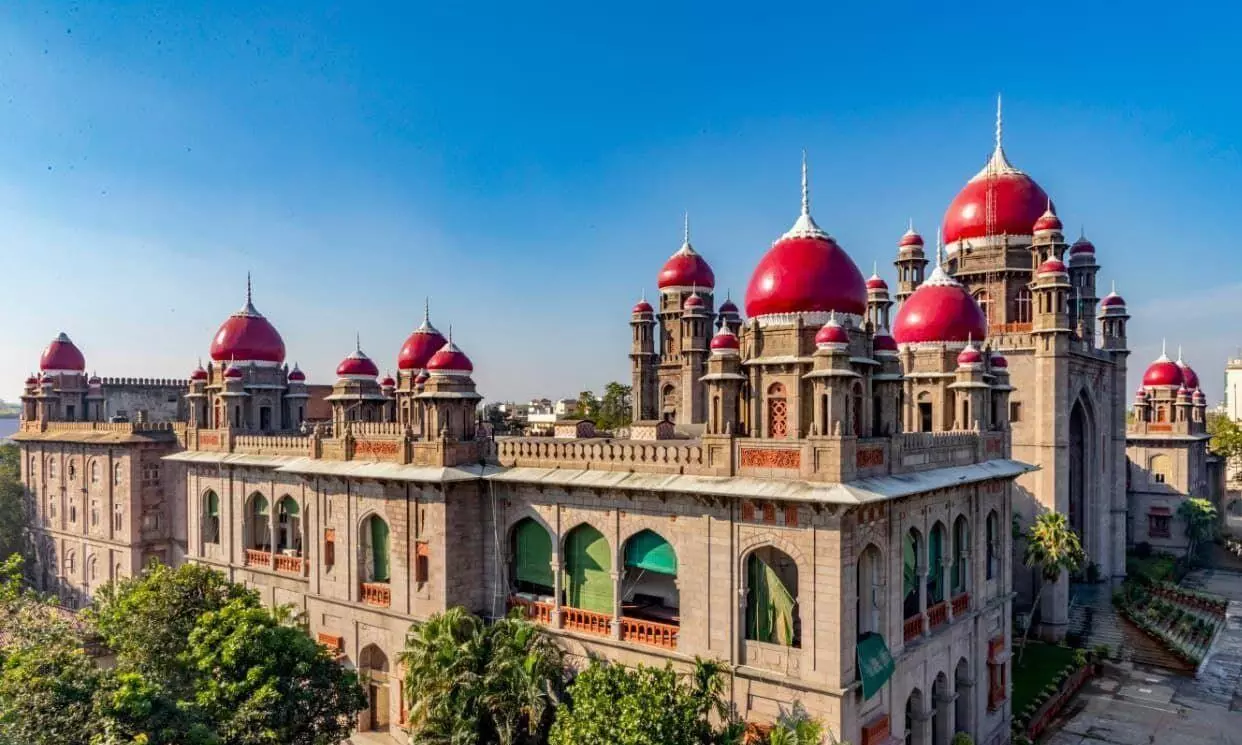Telangana HC Partially Suspends Government Order on Mental Hospital Contract
The judge suspended the part of the order which disqualified the petitioner from participating in other tenders

Hyderabad: Justice K. Sarath of the Telangana High Court suspended in part, an order of the state government regarding the cancellation of the service contract of All Services Global at the Government Mental Health Hospital after a patient died and 30 others were hospitalised.
The incident had occurred on State Formation Day on June 2, following the consumption of sweets served to the inmates. The contract was cancelled on June 4.
The petitioner said that the order was contrary to law. Senior counsel L. Ravichander pointed out that the petitioner could not be blamed for an unfortunate incident and the knee-jerk action of the government was in violation of principles of natural justice.
Ravichander pointed out to the terms and conditions of the contract which required notice — termination without notice was only in exigency of government “convenience”. Ravichander pointed out that the findings on the cause of death or hospitalisation were hypothetical and in violation of the law.
The judge suspended the part of the order which disqualified the petitioner from participating in other tenders. On the other part of the order, on a concession made by senior counsel, notice was ordered to the government, and the judge posted the matter for further hearing.
BH 7-acre row : HC Refuses to Interfere
Hyderabad: The Telangana High Court on Tuesday reiterated that a civil suit was an appropriate remedy to resolve title disputes over land, more so in the absence of original records and conflicting claims regarding the authenticity of the documents presented before the court.
Refusing to intervene in a petition filed with regard to the seven-acre land in Banjara Hills, popularly known as Rock Cliff, Justice C.V. Bhaskar Reddy, citing the principles laid down in the ‘Yanala Malleshwari and others vs. Ananthula Sayamma and others’ and ‘Satyapal Anand vs. State of Madhya Pradesh’ cases, said disputes regarding the execution, genuineness, and validity of registered documents, especially when tainted by fraud, were matters for a civil court.
The land is located in Sy.No.396 (correlated to Revision Sy.No.225), of Shaikpet Village, in Road No.4, Banjara Hills.
The HC also turned down the petitioner’s plea to cancel development agreement cum general power of attorney executed by the respondents claiming ownership of land with a private developer.
The High Court dismissed the writ petitions filed by certain persons claiming to be the legal heirs of Maharaja Kishen Pershad. Arguing for the petitioners, senior advocate D. Prakash Reddy said the sale deeds executed in favour of the ancestors of Sayeeda Abood and others, who entered into DGPA with the developer, were null and void as the permissions were fraudulently obtained under the Urban Land (Ceiling and Regulation) Act, 1976. Both the order of the ULC authorities and sale deeds in questions were obtained and executed in the years 1980 and 1982.
Senior counsel Dammalapati Srinivas appearing for respondents and private developer, contended that their clients traced title from registered documents, from as early as 1937, from the original owners . After getting the approval from ULC only , the subsequent transactions took place.
The petitioners raised questions about the approvals granted by ULC and expressed doubts as the approval documents were found untraceable at ULC department. Hence, they argued that the Registrations were null and void as such clearance of ULC is fabricated.
The court dismissed the writ petitions, finding them to be without merit. The court determined that the core issues involved in the petitions, which relate to disputed questions of title, possession, and the alleged fraudulent execution of sale deeds, cannot be entertained in a writ petition under Article 226.
The court also observed that the proceedings under the Urban Land (Ceiling and Regulation) Act, 1976, do not confirm or extinguish title and that the repeal of the Act further complicates the matter. The Court highlights the conflicting claims regarding the ULC permissions, with the petitioners relying on an RTI response and respondents relying on photostat copies of note files. The Court emphasized that a note file is an internal record and does not constitute legal action unless it culminates in a formal order.

